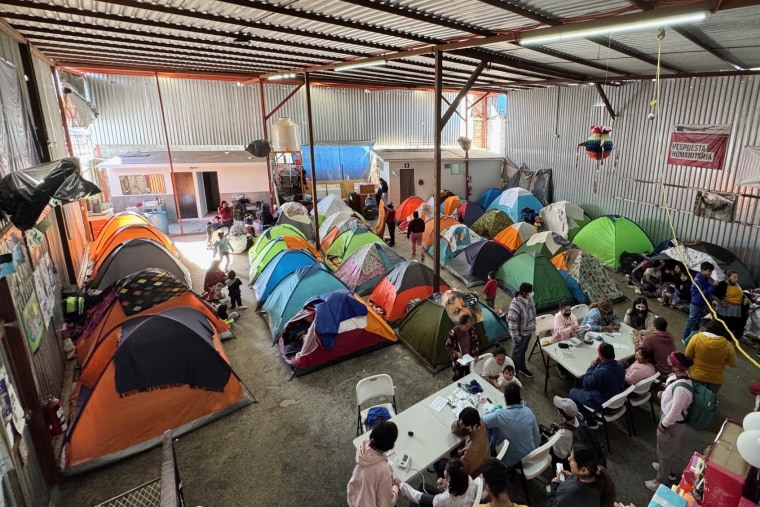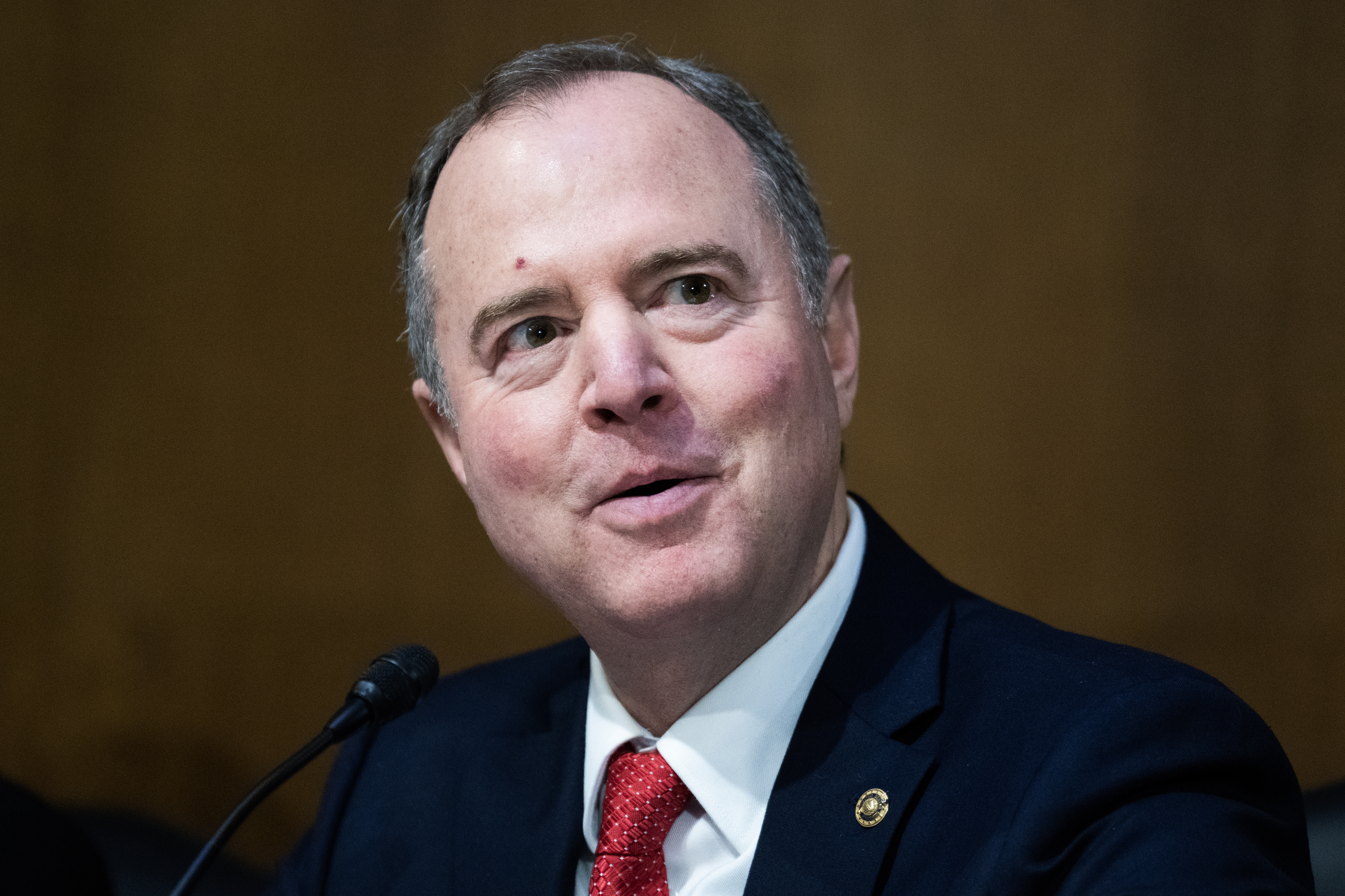
Incoming border czar Tom Homan speaks with Gabe Gutierrez of NBC News.
Donald Trump’s administration would shut down the Darien Gap, the dangerous Panamanian jungle hundreds of thousands of migrants cross each year on their way north, incoming border czar Tom Homan said Thursday in a one-on-one interview at the U.S. southern border.
“It needs to happen,” he said. “Shutting down the Darien Gap is going to protect our national security. It’s going to save thousands of lives.”
Panama has faced pressure to crack down on migration in recent years, and the country’s immigration authorities said this month there had been a 42% drop in crossings last year through the typically lawless 70-mile stretch of jungle.
“We’re going to work with the foreign government,” Homan said.
Homan’s comments come as the president-elect begins laying out an expansionist foreign policy for his second term. This week, Trump didn’t rule out using military force to retake the Panama Canal or acquire Greenland.
Homan, acting director for Immigration and Customs Enforcement during the first Trump administration and a former ICE agent himself, also acknowledged that Trump’s mass deportation plan would include “collateral arrests” — undocumented immigrants without criminal records who are discovered as ICE agents search for their targets.
Homan warned that workplace roundups would ramp up again soon after Trump takes office.
U.S. & World
“We’re going to do it in a smart way,” he said. “We’re still working on how exactly we want to roll this out, but [work site] operations have to come back again because it’s the No. 1 place we find victims of forced labor being run by many cartels.”
A crucial question remains about how the administration will pay for these ambitious plans. ICE already has a $230 million budget shortfall, and it’s unclear when and how Congress will agree on funding. Homan said $86 billion would be a “great start,” noting that it’s less than what the United States has spent on military and other assistance to Ukraine after the Russian invasion.
Feeling out of the loop? We'll catch you up on the Chicago news you need to know. Sign up for the weekly Chicago Catch-Up newsletter.
“I’m saying, ‘We’re going to defend another nation’s borders?’ How about defending our borders, too? And so, give us the money to do this job,” he said.
When pressed about how the Trump administration would pay for this deportation operation, Homan would not say whether officials would take money from the Defense Department to fund it.
“That decision is above me,” he responded. “DOD can certainly be a force multiplier.”
Also on his list for Congress? Detention beds. Homan would like at least 100,000 detention beds; currently, the U.S. has approximately 34,000.
In response to critics of mass deportations who argue that they’d hurt the U.S. economy, Homan was blunt.
“I think mass deportation and results of mass deportation are more important to this country than anything,” he said. “I don’t put a price on all these young women who’ve been raped and murdered. I don’t put a price on our national security.”
Homan also said the transition was considering a “fresh idea” about a hotline that would allow Americans to report undocumented immigrants who they believe have committed crimes in their communities.
“I want a place where American citizens can call and report,” he said. “We need to take care of the American people. We need to make sure they have an outlet to help report child traffickers, forced labor traffickers. We want to give them an opportunity to be a part of the fix.”
Another change Homan would want to make: holding weekly press briefings with updates on deportations.
“I think we need to be transparent for the American people and we need to show people exactly what we’re doing,” he said.
Homan is also discussing the expansion of ICE’s 287(g) program, which allows the federal agency to partner with local law enforcement.
“I’ve got a lot of sheriffs that come to me and can’t wait for 287(g) program be ramped back up,” he said. “So they’re coming to us.”
Homan would not confirm whether the administration plans to reimplement Title 42, the emergency public health measure during the Covid pandemic that made it easier for the U.S. to expel migrants. But he argued that it would be justified because of other diseases migrants might bring across the border, including tuberculosis, measles and chickenpox.
“I don’t know whether he (Trump) has made a decision and I would not get ahead of him,” Homan said. “But I think there could be a case made for it.”
Still, according to the National Institutes of Health, “there is little documentation of emerging disease transmission or epidemic spread to the U.S. attributable to refugees or immigrants.”
Homan also wants to eliminate the Biden administration’s CBP One app, which migrants have been using to schedule initial asylum screenings.
“Creating programs to allow thousands of people in this country a week that we don’t properly vet and that we know don’t qualify is not the answer,” Homan said.

Just a few miles away -- across the border in Tijuana -- Oscar Mendoza Santiago, 44, has been struggling for months to schedule an appointment on the app. He’s been at the Movimiento Juventud 2000 shelter since late November with nine relatives: his wife, four daughters, son and three grandchildren. Inside, about 100 migrants sleep in tents next to Christmas decorations that have not been taken down.
“Have mercy and compassion with the people who want to come [to he U.S.] to work,” he said.
Santiago said he left his hometown in Mexico because of violence and has been trying unsuccessfully to secure an asylum screening appointment. With the Trump administration vowing to scrap the app, he’s worried about the future.
“Plan B is to stay here in Tijuana and work,” he said.
Jose Maria Garcia, the shelter’s director, is concerned that removing options to apply for asylum will force some desperate migrants to make the “incorrect” decision to try to sneak into the U.S.
Trump "won’t stop the migrants coming,” he said. “He won’t deter them.”
But Homan, who said he was speaking with the Trump transition team daily, does think the tighter immigration restrictions will end up being a deterrent.
“I think the American people have spoken,” he said. “This is the No. 1 issue. They went to the voting booth. I think Congress is paying attention. They’ll give us the money to do this job. It’s not so much about illegal immigration. It’s about national security.”
His message to anyone in the U.S. illegally?
“Go home.”
This story first appeared on NBCNews.com. More from NBC News:



